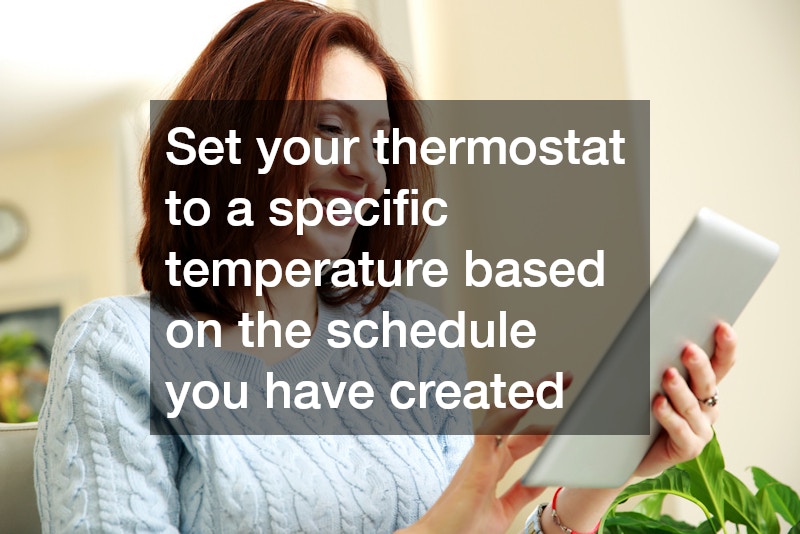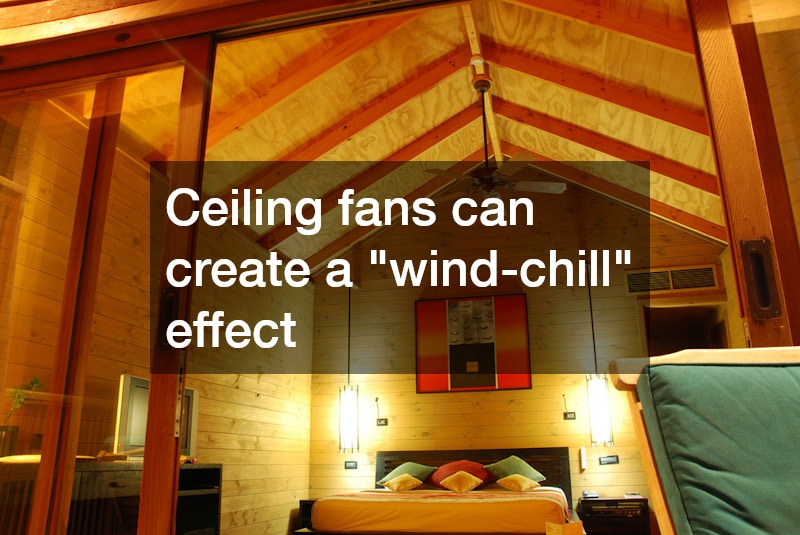Understanding how to maintain your HVAC system properly is essential for homeowners who want their homes to be comfortable and energy efficient. Follow these HVAC tips to ensure your heating and cooling system runs smoothly and efficiently throughout the year.
1. Schedule Regular Maintenance
HVAC maintenance includes regular inspections and tune-ups by HVAC contractors. These visits will help you identify potential problems before they turn into major issues, saving time and money in costly HVAC repairs. Schedule HVAC preventative maintenance for your HVAC system at least once per year to keep it running optimally.
Regular HVAC maintenance can extend the life of your heating and cooling systems. HVAC technicians can inspect the system for worn-out components, thoroughly clean it, and make adjustments if necessary to ensure optimal performance. The proactive approach to HVAC service can prevent unexpected breakdowns and prolong the life of your HVAC system.
2. Change Your Filters
Regularly changing your HVAC filters is one of the easiest yet most effective tips that homeowners can use. Filters that are dirty can limit airflow and cause your HVAC system to use more energy. You can increase the efficiency of your HVAC system and reduce the need for heater or AC repairs by changing your filters at least once a month.
Filters need to be replaced when there is reduced airflow in the home, more dust and debris, or higher energy bills. You can keep your HVAC system running smoothly by keeping filters in stock and setting up a regular reminder to replace them. High-quality filters will also improve the indoor air quality in your home and reduce allergens.
A company that offers air duct cleaning can inspect your ductwork and remove any dust or debris that could be hindering the performance of your HVAC system. Professional duct cleansing can improve indoor air quality and reduce energy consumption. It will also increase the efficiency of your heating/cooling systems.
3. Invest in Programmable Thermostats

A programmable thermostat can help homeowners save money on their energy bills and increase HVAC efficiency. You can set your thermostat to a specific temperature based on the schedule you have created. This will ensure that your HVAC system is only running when it’s needed. These HVAC tips can reduce your energy costs and wear on your heating and cooling equipment.
HVAC companies offer programmable thermostat installation, which ensures a seamless integration into your existing HVAC system. A heating and air conditioning specialist can provide expert advice on the best thermostat for your home and lifestyle.
4. Ensure Proper Insulation
By reducing heat loss and leakage, insulation is essential to maintaining your HVAC system’s efficiency. Insulation is important for keeping your home comfortable all year round and preventing your heating and cooling system from working overtime. To maximize HVAC efficiency and energy savings, homeowners should make sure their homes are properly insulated.
Local HVAC companies can perform energy assessments in order to determine areas of your home that need additional insulation or upgrades. You can reduce the workload of your HVAC system by following these HVAC tips.
5. Seal Air Leaks
Sealing up air leaks is important for HVAC efficiency and comfort in your home. Cold or warm air can escape through leaks, forcing heating and cooling systems into overtime to maintain the desired temperature. Air leaks are common around windows, doors and electrical outlets.
Homeowners can reduce their HVAC system’s workload and energy consumption by identifying air leaks and sealing them with weatherstripping or caulking. Sealing air leaks will not only increase comfort in your home but will also lower your energy costs and extend the life of your heating and cooling equipment. Air leaks can be minimized by regularly inspecting and fixing them.
An HVAC company can perform a thorough inspection of your house to find and seal any air leaks. HVAC technicians are equipped with the knowledge and tools necessary to identify problems and implement solutions that improve indoor air quality and energy efficiency. Air sealing services and HVAC tips can help homeowners optimize their HVAC systems.
6. Set Vents Properly
It is important to maintain HVAC efficiency and comfort by optimizing airflow. Homeowners can adjust the airflow of each room to ensure that the heated or cooled indoor air is evenly distributed throughout the home, preventing hot and cold spots. Properly placed vents can balance the indoor temperature and reduce energy usage.
A technician in heating and air-conditioning can guide you on how to properly set vents to maximize HVAC performance and efficiency. These HVAC tips for homeowners, along with consulting an HVAC professional, will help homeowners learn how to adjust vents according to room layout, seasonal temperature variations, and personal comfort preferences. Properly adjusting vents will help you maintain a comfortable climate and reduce the strain on your HVAC unit.
7. Balance Your Airflow
The process of airflow balancing involves adjusting the HVAC system’s airflow to maintain a consistent temperature throughout your home. Airflow balance helps to maintain consistent temperatures throughout your home, reduces the need for HVAC equipment, and increases overall comfort. By balancing the airflow, homeowners are able to improve HVAC efficiency and lower energy consumption.
An HVAC company can conduct a thorough airflow analysis in order to determine the distribution of air within your home. They will then recommend ways to balance airflow. HVAC technicians are equipped with the tools and training to optimize airflow throughout your heating and cooling system, keeping your home comfortable and energy efficient. Airflow balancing can help homeowners achieve consistent temperatures in each room and improve air quality.
8. Clean Your Ductwork Regularly
It is important to maintain HVAC efficiency, air quality indoors, and the longevity of your system. Dust, dirt and debris accumulate over time in your ductwork. This can restrict airflow, causing your HVAC to work harder. Routine duct cleaning can help homeowners improve air circulation and reduce allergens while extending the life of their heating and cooling systems.
An HVAC technician can evaluate the condition of your home’s ductwork and then recommend a schedule for duct cleaning based on its needs and usage. Working with an HVAC contractor can help homeowners receive expert duct-cleaning services that will improve the airflow and energy efficiency of their system. By investing in duct cleaning, you can extend the lifespan of your HVAC system and improve the quality of the air in your home.
9. Weatherproof Your Windows and Doors
Weatherproofing your windows and doors can be a cost-effective method to increase HVAC efficiency, decrease energy consumption and improve indoor comfort. Weatherproofing around windows and door seals cracks and gaps, preventing heat loss and air leaks. Weatherproofing materials, such as weatherstripping and caulk can help homeowners create an energy-efficient, comfortable home.
Local HVAC companies provide weatherization services, which include checking windows and doors for leaks and applying weatherproofing material, as well as recommending energy-efficient solutions. Working with an HVAC expert, homeowners can get customized weatherproofing that improves the performance and efficiency of their heating and air conditioning systems. Weatherproofing helps homeowners reduce their energy costs and creates a sustainable home.
10. Utilize Ceiling Fans

Our list of HVAC tips includes fans as well. Ceiling fans can be used in conjunction with HVAC systems to improve airflow and distribute heat or cold air more efficiently. They also reduce energy consumption. Ceiling fans can create a “wind-chill” effect, which will make your home cooler during the summer and circulate warm air during winter. You can improve HVAC efficiency and maximize comfort by adjusting the speed and direction of ceiling fans.
An HVAC technician can guide you on how to use ceiling fans in conjunction with your heating and cooling system. Consult a professional in heating and air-conditioning to learn how to use ceiling fans for maximum efficiency and comfort. Ceiling fans can be used strategically to create a comfortable home while saving energy.
11. Manage Humidity Levels
It is important to maintain indoor comfort in your home and the integrity of your HVAC unit. Low humidity can cause respiratory problems and dry air in your home. High humidity can make it feel uncomfortable and sticky. Homeowners can reduce HVAC problems by regulating humidity levels.
An HVAC company can provide solutions to manage humidity levels in your house, including installing humidity control systems and upgrading to an advanced HVAC system. An HVAC technician can provide homeowners with personalized recommendations to improve indoor comfort and regulate humidity. Managed humidity levels help reduce energy consumption and can prevent expensive HVAC repairs.
12. Know When to Call a Pro
One of the best HVAC tips homeowners can use is to ask for help. Knowing when to call a professional HVAC technician to perform repairs or maintenance is important for homeowners. HVAC system problems can be identified by strange noises, inconsistency of heating or cooling, frequent on-and-off cycles, and higher energy bills. These warning signs can help homeowners address problems before they become major HVAC issues.
You should contact an HVAC company if you notice any of these signs or suspect your HVAC system may not be working properly. HVAC technicians are equipped with the knowledge and skills to diagnose and fix a variety of heating and cooling problems. This will ensure that your home is comfortable and energy efficient. Homeowners can avoid costly HVAC repairs by addressing problems promptly.
A certified HVAC contractor will perform regular maintenance and tune-ups to extend the life and prevent unplanned breakdowns of your heating and air conditioning equipment. Homeowners can maintain their HVAC systems by scheduling regular inspections and adhering to preventative maintenance procedures. Professional HVAC services will give you peace of mind that your home is in the best hands.
13. Consider Energy-Efficient Upgrades
Upgrades that are energy-efficient can be a great investment for homeowners who want to reduce their utility bills, improve HVAC efficiency, and lower their energy consumption. Upgrades to energy-efficient HVAC systems such as high-efficiency furnaces, air conditioning units, and heat pumps will help homeowners reduce their heating and cooling expenses. Energy-efficient systems can improve comfort and performance while also reducing the environmental impact.
Upgrades that are energy-efficient can include upgrading your insulation, sealing leaks, and improving airflow. These upgrades can improve HVAC efficiency, reduce waste energy, and create a sustainable living environment. An HVAC professional can provide homeowners with recommendations for the most energy-efficient upgrades that fit their budget and needs.
Local HVAC companies provide energy-efficient products and installation services that help homeowners optimize their HVAC efficiency. Energy-efficient upgrades can help homeowners save money, improve system performance and create a greener home. Upgrade to energy-efficient HVAC systems to improve comfort, reduce costs, and reduce carbon footprint. It’s also one of the best HVAC tips for homeowners.
In Closing
Follow these HVAC tips to ensure your heating and cooling system operates efficiently. In order to maintain a comfortable, energy-efficient house, it is important to perform regular maintenance, change filters, use programmable thermostats, and invest in energy-efficient upgrades. Prioritizing HVAC maintenance and following these tips will help homeowners enjoy reliable HVAC performance and lower energy bills throughout the year.
